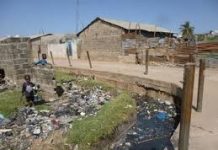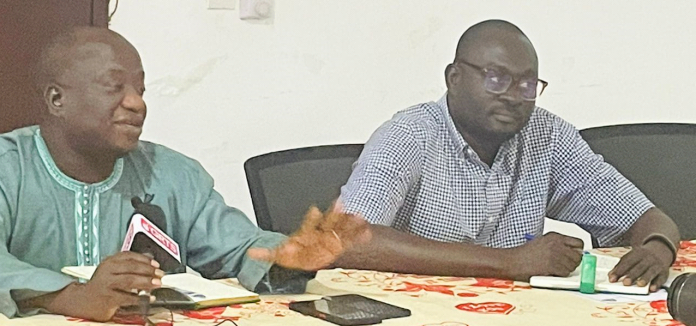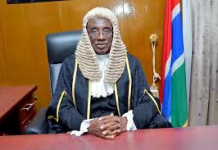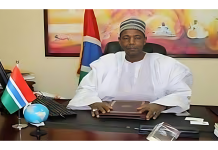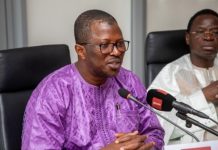By Sheikh Alkinky Sanyang
The National Environment Agency (NEA)`s GEF-6 Land / Seascape Planning and Ecosystem Restoration project is supporting a five day capacity building training on interpretation and implementation of policies for mainstreaming biodiversity conservation and sustainable land management principles in land and seascapes, in the CRR regional capital, Janjanbureh. The primary objective of the training is to enable central and local government institutions and other stakeholders including the LECs, understand the importance of biodiversity conservation and sustainable land management in promoting sustainable development, and to interpret and understand the six declarations adopted by key stakeholders, develop the skills necessary to implement the policies and practices outlined in the declarations, and to enhance the capacity of participants including the LECs, develop and implement action plans for mainstreaming biodiversity conservation and sustainable land management in their respective institutions and communities.
In his opening statement, Sainey Mbye the Deputy Governor of CRR noted that Kuntaur Local Government Area (LGA)in particular and CRR in general are facing formidable environmental and sustainability challenges including deforestation, illegal fishing, and hunting are posing a major threat to the rich biodiversity and delicate ecosystems of the region, thereby hindering sustainable development. It is in response to these challenges, Deputy Governor Mbye said key stakeholders within the Kuntaur LGA and the Central River Region have taken critical steps towards addressing these issues by adopting six declarations aimed at promoting biodiversity conservation and sustainable land management.
“These declarations hold great significance as they outline a roadmap for the protection and conservation of the region’s natural resources and cultural heritage. The declarations recognize deforestation as a major challenge to sustainable development in the Kuntaur LGA, highlight the dangers of illegal fishing in the Central River Region segment of the River Gambia, and emphasize the importance of biodiversity conservancies as a strategic approach towards sustainable development in the Kuntaur LGA. The declarations also emphasize the role of ecotourism in driving sustainable development, highlight the need to address the challenge of hunting in the Kuntaur LGA, and recognize the value of cultural and historical heritage as key resources that need preservation for the benefit of future generations”. Mr. Mbye said.
Njagga Touray, NEA`s Director of Inter-Sectoral Services Network, said “the purpose of the five-day training program is to provide central and local government institutions, as well as other stakeholders, including the Local Environment Committees (LECs), with the knowledge and requisite skills needed to effectively interpret and implement the declarations.” He told participants that the training will cover a range of topics including introduction to biodiversity conservation and sustainable land management, analysis of the six declarations, practical steps for implementation, key challenges and opportunities, and the development of action plans to drive change. By the end of the training, he continued, participants will have the necessary knowledge and skills to make a tangible impact in promoting biodiversity conservation and sustainable land management in the Kuntaur LGA and the Central River Region, thereby ensuring a sustainable future for the region.
Target participants for this training are central and local government institutions, community-based organizations, civil society organizations, the Local Environment Committees (LECs), and other stakeholders involved in biodiversity conservation and sustainable land management in the Kuntaur LGA and the Central River Region segment of the River Gambia.
